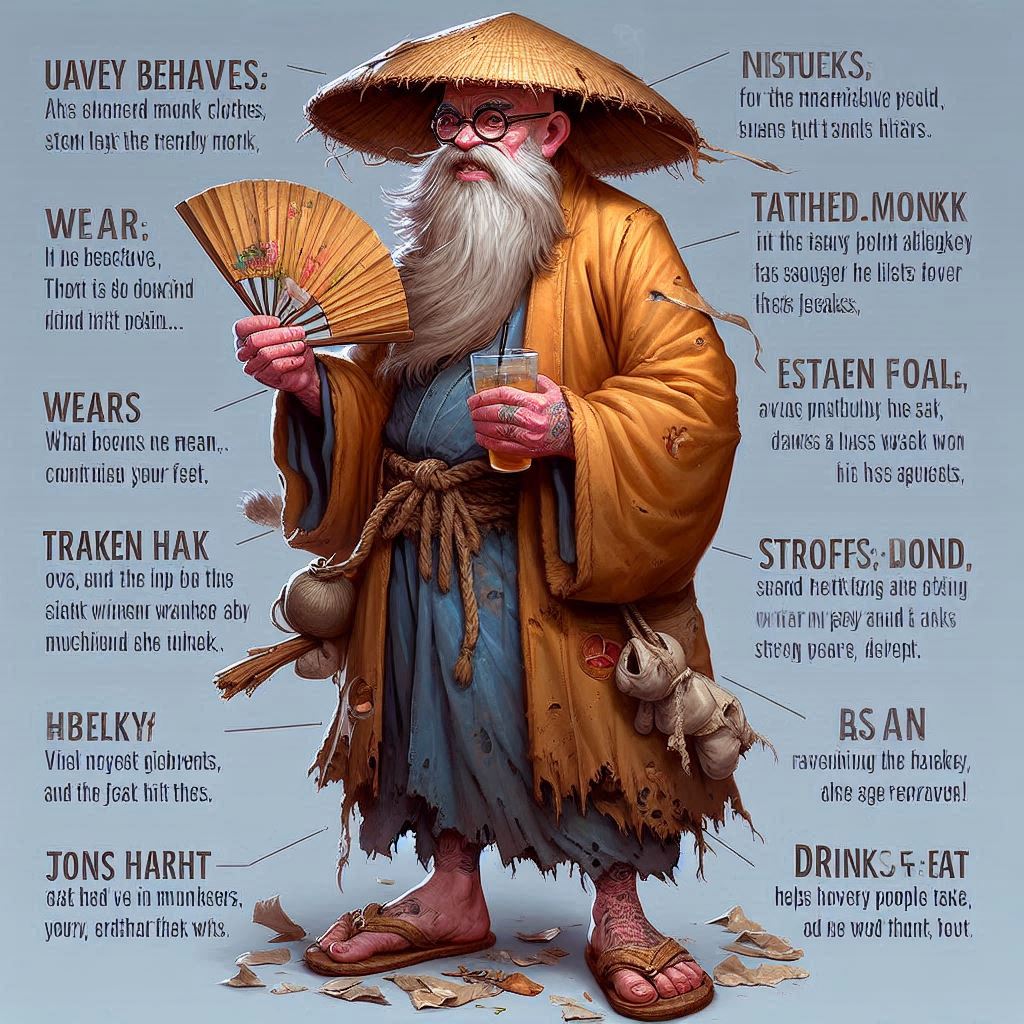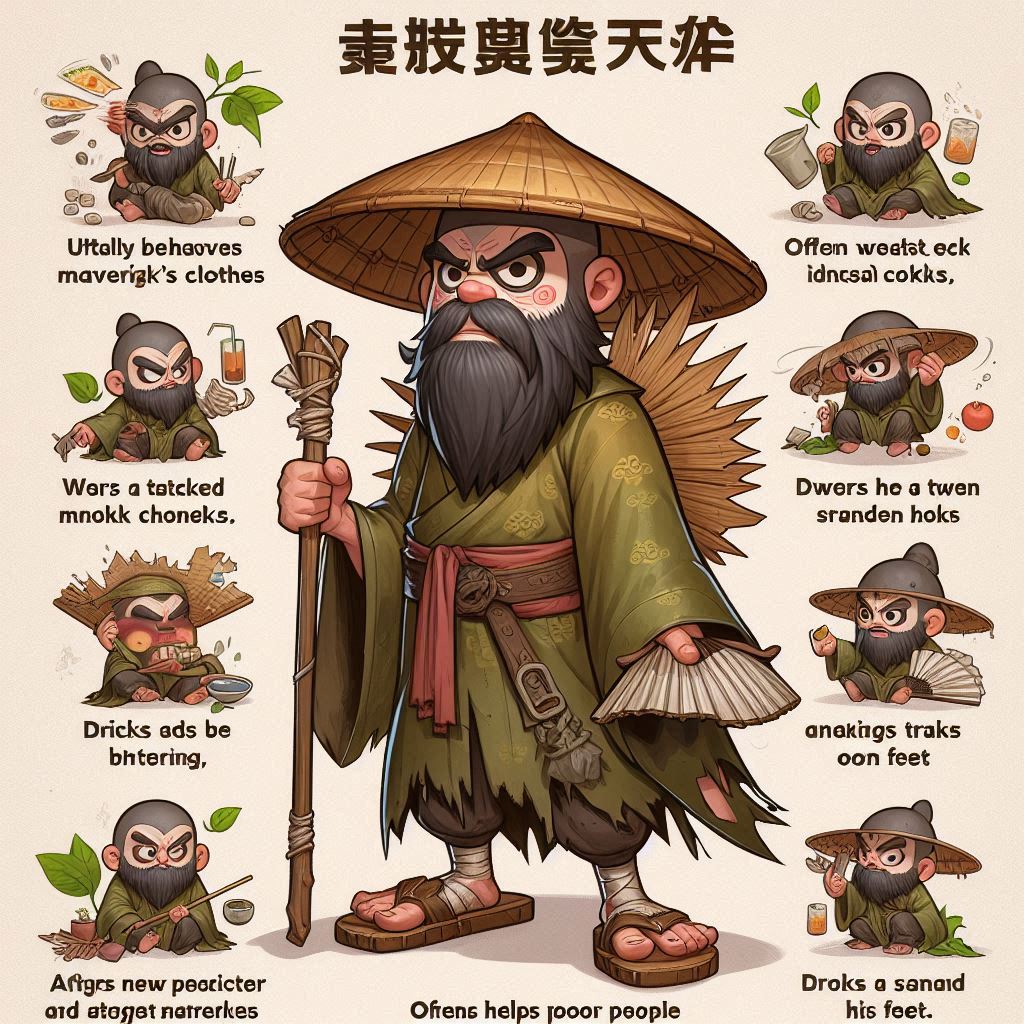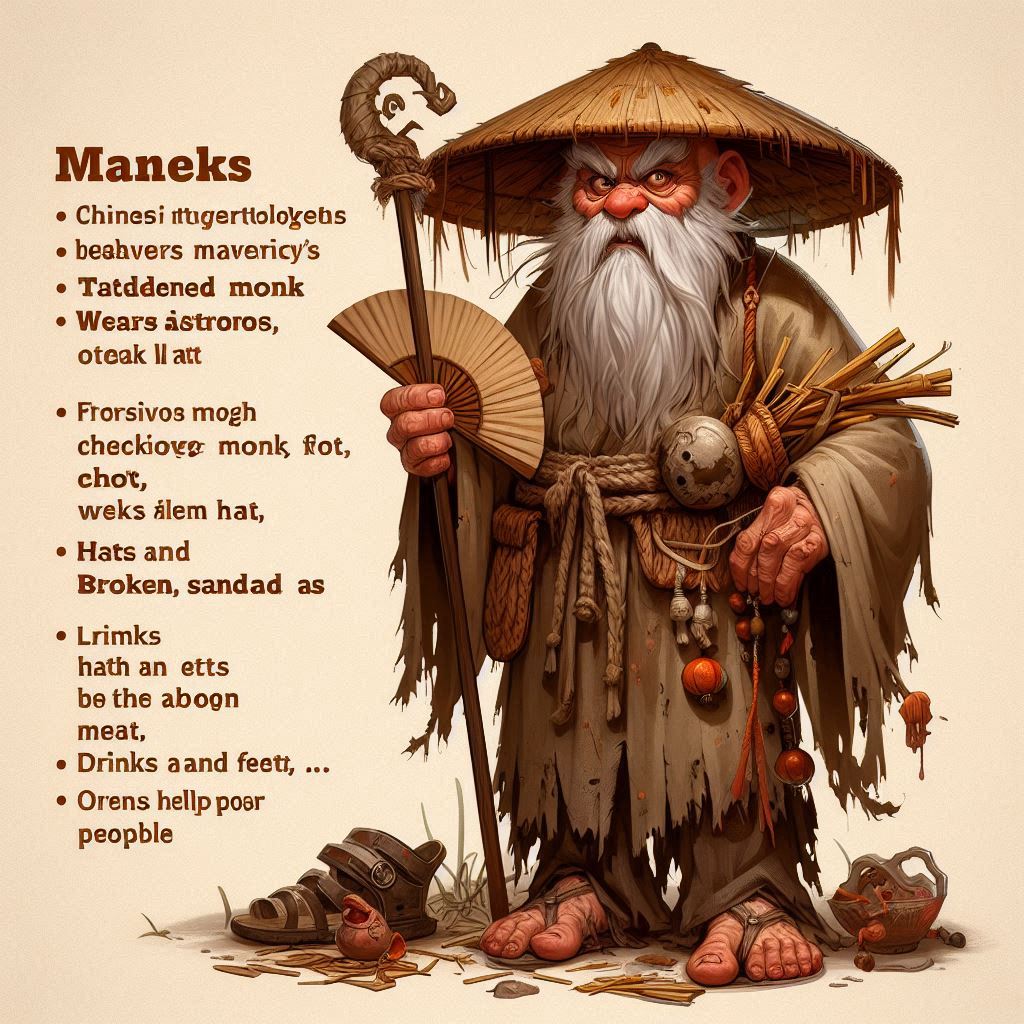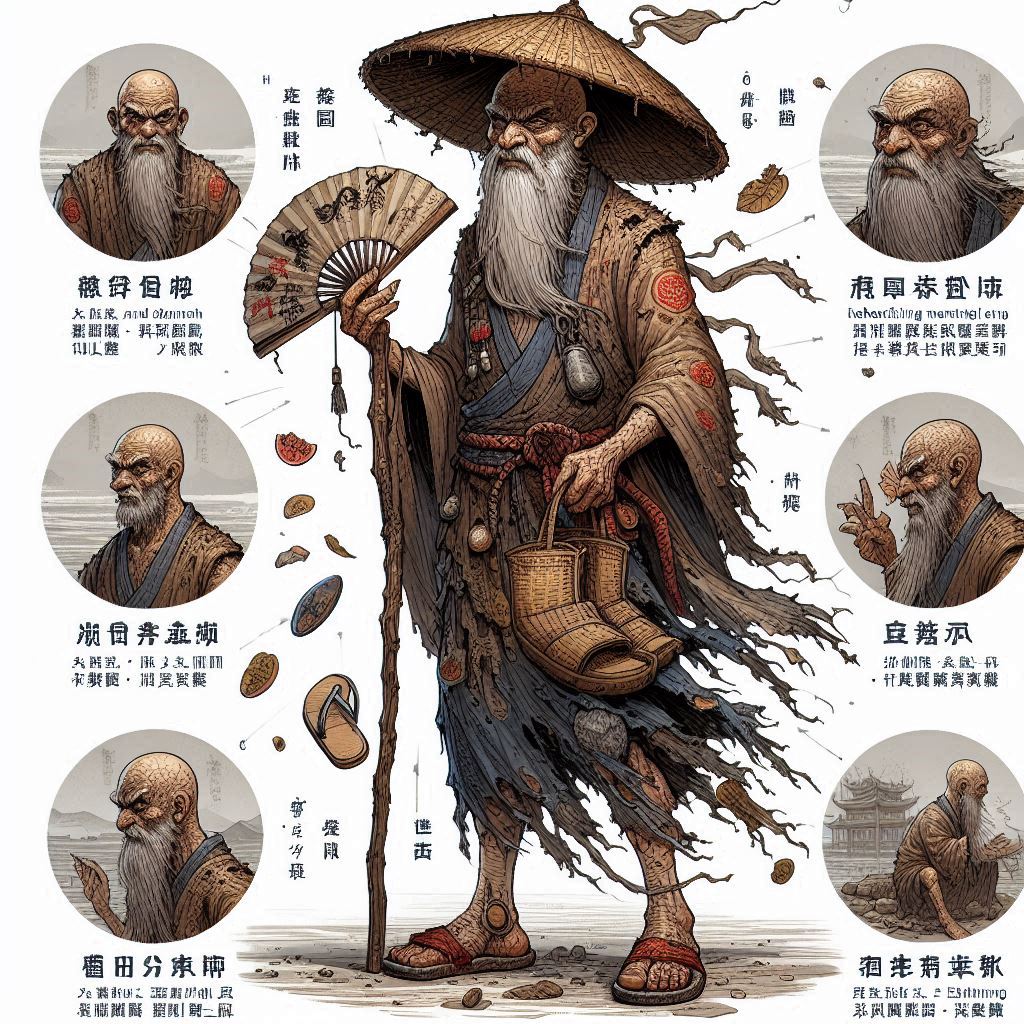救苦救難的濟公
兩岸三地常有演員因為扮演濟公而走紅,例如台灣的許不了和早期中國大陸的國寶級藝人游本昌。近期,小張因為屋主沒有提供暖爐,導致雙腿嚴重凍傷,為此擔心不已。某日,他在夢中聽到安撫人心的聲音,告知他搬到現有的地方好好住下,一切都會好起來的。最後,那個聲音告訴小張他就是濟公。搬到新的住所後,小張的凍傷狀況果真慢慢好轉,讓小張不禁開始懷疑那天夢境中是否真的是濟公來解圍。
原名李修緣的濟公於公元1148年出生在浙江省天台縣永寧村,1209年去世。父母為虔誠的佛教徒。年幼時逃婚,並在杭州靈隱寺出家,法號為道濟和尚但更常被人稱為濟顛。平時行為特立獨行,不守僧規,常穿破爛僧衣,頭戴破帽,手持破扇,腳穿草鞋,飲酒吃肉,但同時也積極行善助人。濟公以許多神奇的傳說和事蹟而聞名。以下是一些著名的故事:
救濟百姓:經常利用自己的神通幫助貧苦百姓。他有時會變出食物和錢財,分發給需要的人。
驅魔除妖:濟公被認為有驅魔除妖的能力,許多人相信他能夠降妖伏魔,保護平民免受邪靈侵害。
預知未來:傳說他具有預知未來的能力,經常預言即將發生的事件,並警示人們。
治病救人:濟公經常利用自己的法力和醫術,治癒各種疑難雜症,拯救眾生於危難之中。
濟公的影響與傳承:濟公在世時行善積德,廣受百姓愛戴。他的事蹟被廣泛傳頌,成為民間信仰的一部分。後來,濟公的故事被整理成書,形成《濟公全傳》等文學作品。這些作品描繪他奇特的生平和神異的事蹟,使濟公的形象深入人心。
濟公的形象通常被描繪成一個衣衫襤褸的僧人,頭戴破帽,手持破扇,腳穿草鞋,面帶微笑,表現出他不拘小節、樂觀豁達的性格。他常常出現在廟會、戲劇、電視劇和電影中,成為人們喜愛的民間人物之一。
濟公在中國文化中占有重要地位,他的形象象徵著智慧、仁愛和超越世俗的精神。他的故事不僅在中國廣泛流傳,還影響到其他亞洲國家。他被視為一位神聖的救濟者和保護者,許多人在困難時會向他祈求幫助。
總之,濟公是一位充滿傳奇色彩的歷史人物,他的善行和神奇事蹟為人們帶來無數啟示和安慰,成為中華文化中不可或缺的一部分。
Many actors from Taiwan, Mainland China, and Hong Kong have risen to fame by portraying Ji Gong, such as Taiwan's Xu Bu Liao and early Chinese national treasure actor You Benchang. Recently, Xiao Zhang, due to his landlord not providing a heater, suffered severe frostbite on his legs and was very worried. One day, he heard a comforting voice in his dream, telling him to move to new place and live there well, assuring him that everything would get better. Finally, the voice told Xiao Zhang that he was Ji Gong. After moving to the new place, Xiao Zhang's frostbite gradually improved, making him wonder if it was really Ji Gong who came to his aid in the dream.
Ji Gong, originally named Li Xiuyuan, was born in 1148 in Yongning Village, Tiantai County, Zhejiang Province, and passed away in 1209. His parents were devout Buddhists. He fled from an arranged marriage at a young age and became a monk at Lingyin Temple in Hangzhou, with the Dharma name Daoji, though he was more commonly known as Ji Dian. His behavior was unconventional; he did not adhere to monastic rules, often wore tattered robes, a broken hat, and grass sandals, and was known to drink alcohol and eat meat. However, he was also known for his kindness and willingness to help others. Ji Gong is famous for numerous miraculous legends and deeds. Here are some of his notable stories:
Helping the Poor: Ji Gong frequently used his supernatural powers to help the poor. He would sometimes conjure food and money to distribute to those in need.
Exorcising Demons: Ji Gong was believed to have the ability to exorcise demons and protect people from evil spirits.
Foreseeing the Future: He was said to have the power to predict future events and often warned people about impending dangers.
Healing the Sick: Ji Gong often used his supernatural abilities and medical knowledge to cure various illnesses and save people from peril.
Ji Gong's Influence and Legacy: While alive, Ji Gong's good deeds earned him widespread admiration. His stories were widely told and became part of popular folklore. Later, these tales were compiled into books such as "The Complete Biography of Ji Gong," which depict his extraordinary life and miraculous deeds, embedding his image deeply in people's hearts.
Ji Gong is typically depicted as a ragged monk with a broken hat, a torn fan, and grass sandals, always smiling, reflecting his carefree, optimistic, and generous personality. He frequently appears in temple fairs, operas, TV dramas, and movies, making him a beloved folk character.
Ji Gong holds an important place in Chinese culture, symbolizing wisdom, compassion, and a transcendence of worldly concerns. His stories have not only been widely circulated in China but have also influenced other Asian countries. He is seen as a holy benefactor and protector, with many people praying to him for help in times of trouble.
In summary, Ji Gong is a legendary historical figure whose good deeds and miraculous stories have provided countless people with inspiration and comfort, making him an indispensable part of Chinese culture.




照片:DALLE3
- 1
- 2
- 3
- 4
